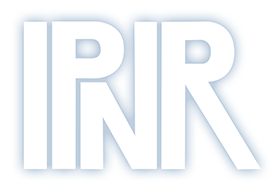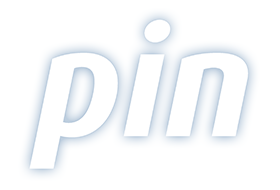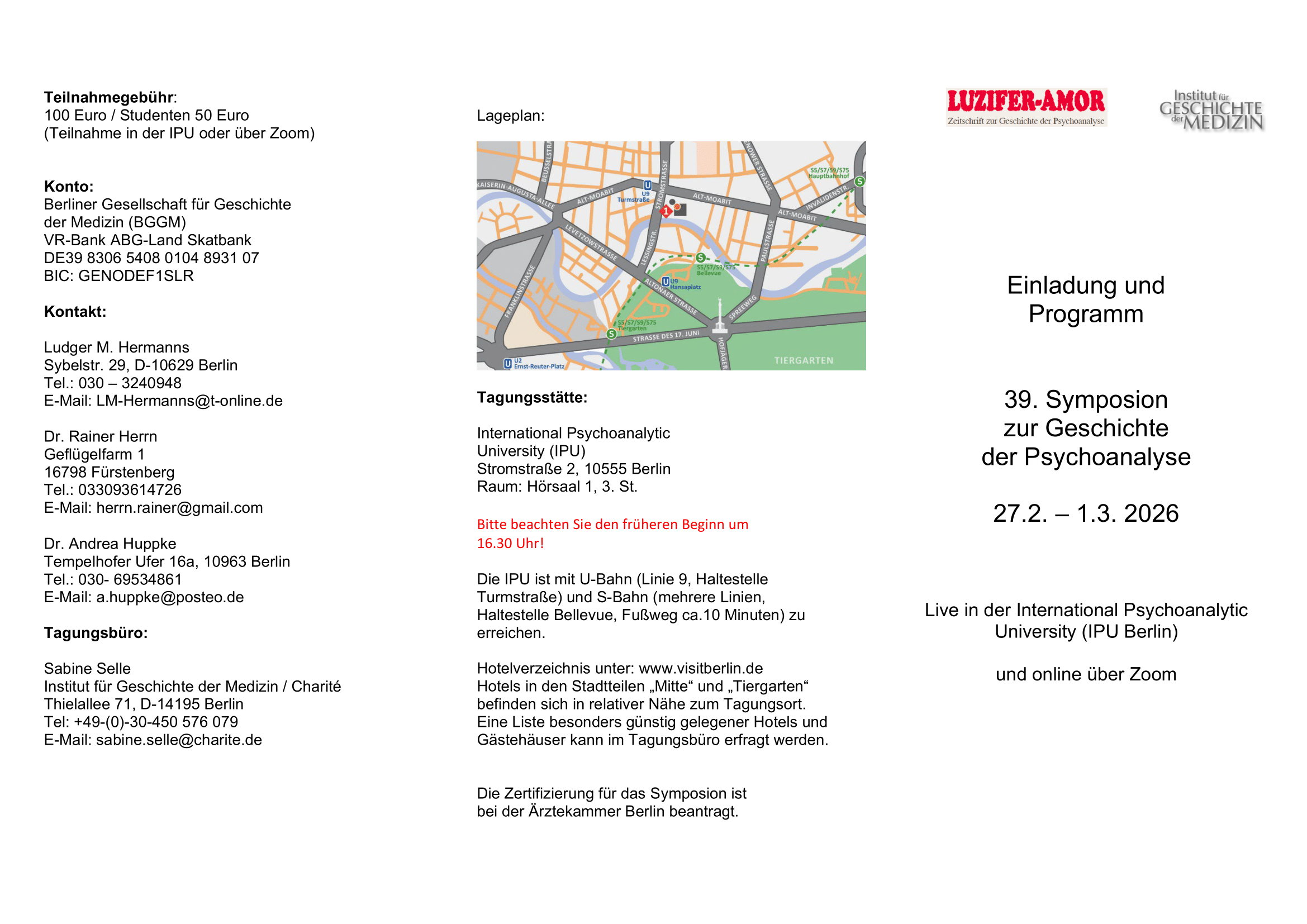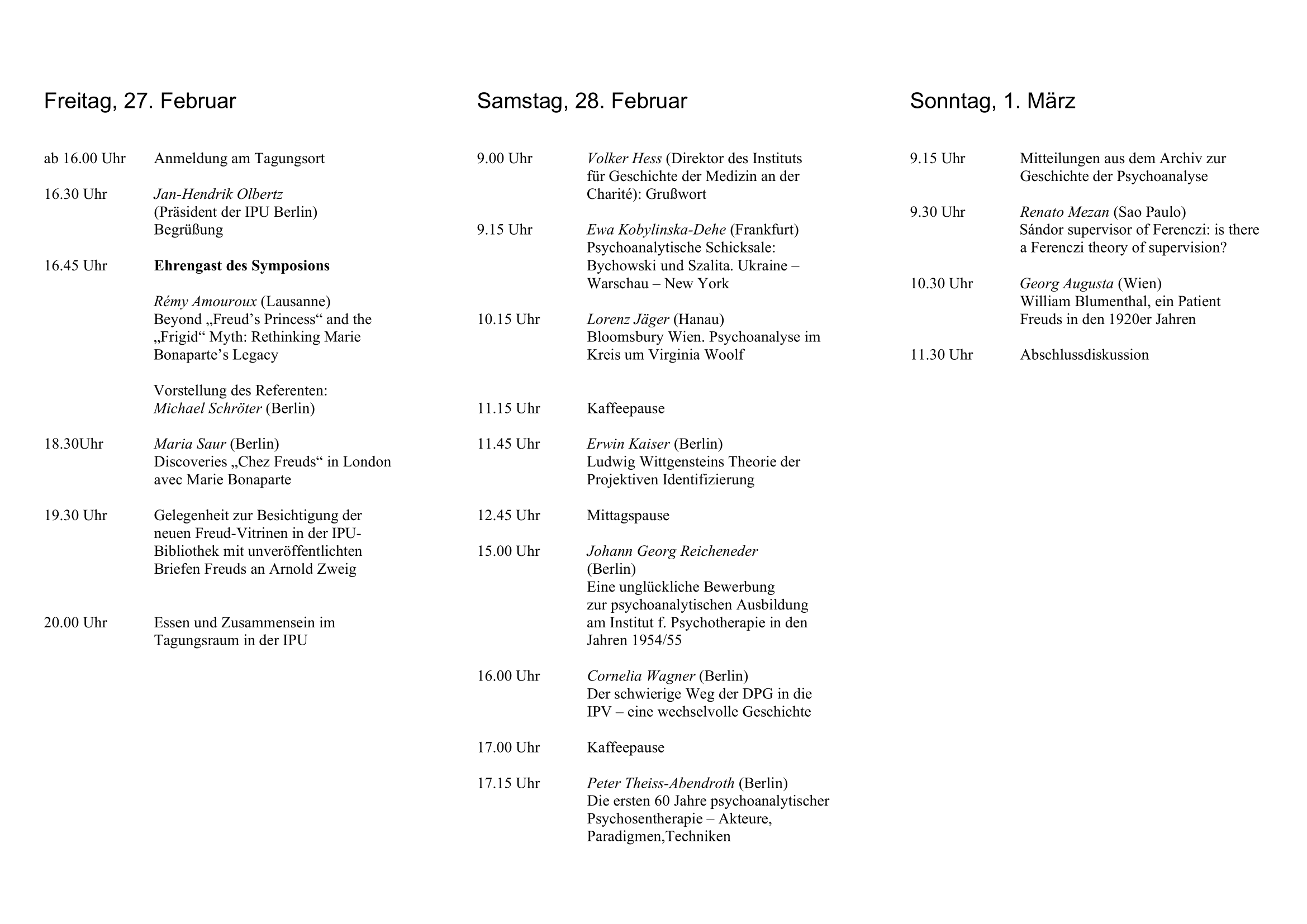und Psychotherapie Nürnberg
und psychotherapeutischen Institute
in Nürnberg und Regensburg

Institut für Psychoanalyse (DPG)
Nürnberg - Regensburg e. V.
Penzstraße 10 • 90419 Nürnberg
Sekretariat: E-Mail
Tel.: 0911-977 971 01

Institut für Psychoanalyse
und Psychotherapie von Kindern
und Jugendlichen Nürnberg e.V. (KIP)
Rieterstraße 6 • 90419 Nürnberg
Sekretariat: E-Mail
Tel. 0911-400 86 59

Institut für Psychodynamische
Psychotherapie Nürnberg e.V. (PIN)
Untere Baustraße 20 • 90478 Nürnberg
Sekretariat: E-Mail
Tel.: 0911-93783971
Nächste Termine
In seiner langjährigen Geschichte hat sich das Symposion zum zentralen Forum der psychoanalysehistorischen Szene im deutschsprachigen Bereich herausgebildet. Das Programm wird in der Hauptsache nicht "gemacht", sondern repräsentiert laufende Arbeitsprojekte im Feld, soweit sie zum Vortrag angeboten werden. Die Mehrzahl der Referenten sind nicht-akademische Forscher, die gleichwohl akademisches Niveau anstreben. Auch akademische Autoren aus verschiedenen Fakultäten, vor allem jüngere, nutzen das Symposion zur Vorstellung einschlägiger Arbeiten.
Kontakt:
Ludger M. Hermanns: Diese E-Mail-Adresse ist vor Spambots geschützt! Zur Anzeige muss JavaScript eingeschaltet sein!
Rainer Herrn: Diese E-Mail-Adresse ist vor Spambots geschützt! Zur Anzeige muss JavaScript eingeschaltet sein!
Andrea Huppke: Diese E-Mail-Adresse ist vor Spambots geschützt! Zur Anzeige muss JavaScript eingeschaltet sein!
Tagungsbüro (Sabine Selle): Diese E-Mail-Adresse ist vor Spambots geschützt! Zur Anzeige muss JavaScript eingeschaltet sein!
23.–33. Symposion in Berlin, 2010–2020
34.–35. Symposion, 2021 und 2022: wegen Corona als Zoom-Veranstaltung
Programm 2024
Programm 2023
Programm 2022
Programm 2021
Programm 2020
Programm 2019
Programm 2018
Programm 2017
Programm 2016
Programm 2015
Programm 2014
Programm 2013
Programm 2012
Programm 2011
Programm 2010
Symposien 1–22 in Kassel und Tübingen
Liebe Kolleginnen, liebe Kollegen,
wir freuen uns sehr, Sie zur 39. Jahrestagung der Europäischen Psychoanalytischen Föderation 2026 nach Oslo, Norwegen, einzuladen. Zum ersten Mal wird die EPF-Tagung in Norwegen stattfinden mit der Norwegischen Psychoanalytischen Gesellschaft als unserem Gastgeber. Wir ziehen also weiter von unserer Tagung in Dresden an der Elbe nach Oslo, das an dem beeindruckenden Oslofjord gelegen ist. Unser Tagungshotel, das Clarion Hotel The Hub, ermöglicht einen phantastischen Blick auf diesen Ausläufer der Nordsee.
Als Thema haben wir „Neutralität – Neutrality – Neutralité“ gewählt. Dabei handelt es sich um einen Begriff, der nicht nur innerhalb der Praxis der Psychoanalyse, sondern auch auf anderen Wissenschaftsfeldern Verwendung findet.
In der internationalen Politik bezeichnet „Neutralität“ (lateinisch neuter = weder das eine noch das andere) entweder, dass ein Staat in einer Konfliktsituation zwischen anderen Staaten keine Konfliktpartei unterstützt oder aber, dass er kein Mitglied eines Bündnisses ist.
Die Neutralität des Gerichts wiederum ist ein zwingendes Gebot des Rechtsstaatsprinzips: Exekutive und Judikative sind demgemäß organisatorisch scharf getrennt. Das Gericht ist kein Handlanger des Staates.
In der Philosophie wird das Problem der Neutralität zusammen mit dem der Objektivität verhandelt: objektiv sein, heißt, von einem neutralen Standpunkt aus zu urteilen, also von der eigenen Subjektivität bestmöglich zu abstrahieren.
Klimaneutralität meint schließlich, dass menschliche Aktivität keinen Einfluss auf das Klima ausübt.
Keynote Speakers:
Thiemo Breyer, Hanne de Jaegher, Sanneke de Haan, Peter Henningsen, Sabine Koch, Stefano Micali, Matthew Ratcliffe, Sonja Rinofner-Kreidl, Louis Sass, Giovanni Stanghellini, Michela Summa, Christian Tewes, Dan Zahavi
Call for Abstracts for shorter presentations in parallel sessions will be announced in autumn 2025.
Description:
The conference brings together perspectives from phenomenology, enactivism, and psychopathology to illuminate the self in the social world, its variations, and how it is shaped by contemporary technological, societal, economic, political and environmental developments. Among others, challenges such as loneliness, unclear identities, existential threats, alienation, and displacement have become increasingly prominent in our current era. The following classical questions, among others, will form the vantage point for new explorations in light of our current times:
• What processes – on the individual and on the group level – contribute to creating the multiple, intertwined social realities in which we find ourselves?
• How are identities constructed, both individually and collectively, within these realities?
• In what ways is our sense of self socially constituted and mediated through the concrete worlds and practices we intersubjectively enact?
• What do resistance and counter-movements to these changes reveal about the constitution of selfhood?
• What opportunities exist for participation in shaping social worlds, how are they distributed, and through what dynamics are they negotiated?
• What forms of social fullfillment can we hope to achieve within our communities, how might individual and collective self-realization be possible, and what constitutes a good life in today’s societies?

